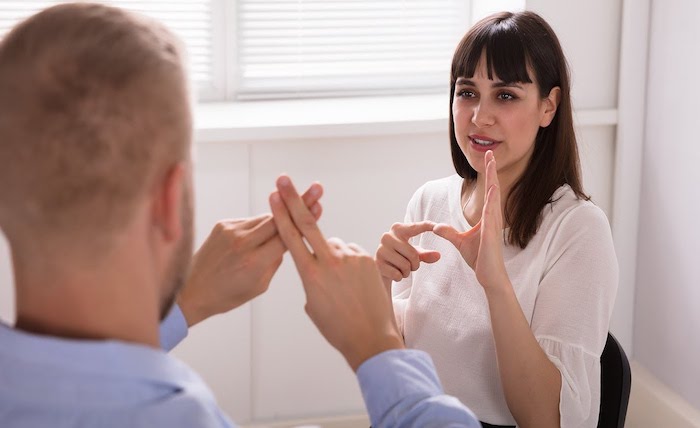To begin, it is important to acknowledge a person is much more than his or her disability. When I explain my deafness to people, I always say being deaf is not who I am, but rather only a part of who I am. I am so much more than just a DEAF person—I am a PERSON who is deaf.
Disability - why do we find ourselves so hesitant to say it?
Disability isn’t a negative word. Yet, we dance around it. We are even reluctant to address it. Why? It is probably because of another “D” word: Different.
Disabilities are different from what many people consider, or see as the “norm.” And, as humans, we tend to shy away from things we don’t understand, or find different. Persons with disabilities may live life differently, and approach things differently. If one person goes through life differently than another, it does not mean the experience, the approach is any less valid, or meaningful. It is really important to realize that different does not mean less.
It brings us to another essential point: how do we embrace this difference in “ability?” You simply accept that the disability is a part of the person. A disability is similar to a person’s trait, such as having blonde hair, or being left-handed. This particular trait, instead, impacts how the person navigates life, which usually looks different than an abled person’s life.
Let’s Learn Together! Let’s Promote Belonging, Inclusion, And Open Conversation.
The best advice I find helpful in creating an environment of inclusivity is to follow these four A’s: accessibility, availability, acceptability, and adaptability.
We live in a predominantly abled world and it isn’t always inclusive to the disabled. It is vital, for instance, to provide a space where a person who is disabled can state what accommodations they need, as well as how they choose to be identified (disabled, differently abled, deaf, blind, etc.). These steps will allow them to be authentically themselves.
An inclusive environment means listening and being inquisitive to a disabled person’s needs, or preferences and accommodating appropriately. It is not an expectation for you to know everything about every disability to be inclusive.
It is also okay to say the wrong thing, or do the wrong thing because we know you’re learning - and you’re being open to learning. It shows you care when you actively own any mistakes and rectify any missteps, when they are brought to your attention.
We all have the ability to advocate and be inclusive, particularly as the disabled often don’t have a seat at the table. It doesn’t mean to ignore our differences. It means embracing our differences - embracing our abilities. It is this intersection where a disability becomes an ability - and we feel valued at our work and in life.
As we can all relate, when we feel like we belong, we do our best work, we are our best selves. It is how we thrive together, pay it forward, and create an inclusive environment for all.
By Hannah Rose Higdon, Client Success Specialist & LifeGuide
As a LifeGuide, Hannah’s expertise includes: Self-Esteem, Self Image; Stress & Anxiety Management; Overcoming Self-Doubt; Family Conflict; Living with a Disability; Happiness Mindset
###
LifeGuides is proud to announce its expansion of support and the new topic area, Enabling Abilities, for our employee families.



